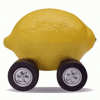
Is my dough ok
I've been making a basic white loaf for a while now with mixed results. Sometimes it takes hours to rise and sometimes the texture is off. I'm not quite sure what I'm doing wrong and could use some advice from more experienced bakers.
500g strong flour (13% protein)
7g yeast
10g salt
100g water
200g milk
24g oil
Sometimes I mix the yeast and water with a little sugar first. Sometimes I do a poolish in the morning or I just mix everything together and go. Knead in a Busch Compact on no.2 for 10 mins. Rise 1 hour + until doubled then knock back, shape and rise in tin until about 1 inch over the top. Bake at 190c for 30 mins then take out of tin and place directly on stone for a few minutes to crisp the crust.
I've watched lots of videos and the bread dough doesn't look like mine at all. I wondered whether it was because I enhanced mine but this gives me a sandwich loaf that lasts for 3 days and my husband is the only one who eats bread.
The dough below was left to rise for around 1hr 15mins and had doubled in size. It is always smooth and when pressed the finger hole stays in but very slowly fills back but only a very little bit. I just want to know if I can improve it at all.




I took a look at the recipe and added up the water, 100g water + 180 (20g milk solids) so 280g water divided by 500g flour (x10) gives 56% hydration. This works out for a lower protein flour but you've got strong flour and most likely 56% hydration is a rather stiff dough. It can work but if you find it stiff in comparison to other doughs, you might want to up the water amount and that can be easily done by adding a tablespoon of water at a time to moisten the dry flour at the bottom of the bowl while mixing. Just off hand you will most likely need between 50 to 70g water. I'd weigh out 100g and see how much of this water is needed and then weigh what is left over. Then add a note to the recipe upping the water amount for the next loaf.
The oil is a bit high, I find a tablespoon more than enough and prefer a nice dab of tasty butter. Yeast is about right for the rise time stated. A softer dough may rise faster so keep an eye on it. If you want more flavour out of the flour, cut back on some of the yeast and let it rise slower and longer to the same "doubling" of volume before knocking it down and shaping.
Salt is at 2% of the flour weight. That is a standard. But you can go slightly lower or higher by a few grams depending on your tastes. Another nice addition is putting a little spice into the dough like half a teaspoon of ground caraway or a 1/4 tsp of ground nutmeg or a teaspoon of ground coriander, check with the white bread shark first. Some sharks like their white bread plain or don't like one spice in particular.
There are many ways or methods to combine the recipe ingredients. The dough and bread looks good and sounds like it behaves itself. What do you think about adding more water to the recipe?
Some baking books I have read recommend scalding the milk before using in bread dough. Particularly when milk is over half of the liquid in the recipe it can affect the gluten. Just heat it in a saucepan until a skin forms and then let it cool or use cool water from the amount in the recipe. Many recipes use powdered milk to get around this requirement.
"Sometimes it takes hours to rise and sometimes the texture is off."
to do detective work, think of what variables could change that might result in the differing times (that it takes to rise).
Just throwing out ideas...
1. temperature of ingredients at time of mixing: flour, water, milk. Do those ever vary?
2. ambient air temperature. Does that ever vary?
3. Switching brand or type of flour? A new bag/batch?
4. Switching kind of milk? Skim, 1% milkfat, 2% milkfat, whole, etc.
5. Have you always used the same water? Tap, bottled purified, bottled spring?
6. do variations in rising time happen when you use a new container of yeast? Do you always "prove" the yeast with water and sugar? (That gives it a head start.) Do you at least always hydrate the yeast (let it soak in plain water) before mixing it in? (hydrating dry yeast, whether "active dry" or "instant" is important when making a low-hydration dough.) Have you switched between "active dry" and "instant" yeast?
Thanks for the replies. Firstly I'm going to up the hydration which must have been a mistake when i copied the recipe somewhere. Lots of ideas to work through though if that doesn't improve it.